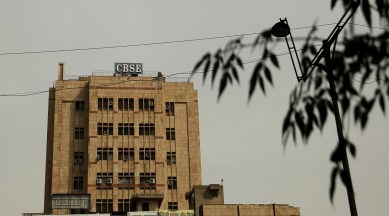Stay updated with the latest - Click here to follow us on Instagram
After CBSE refusal how Delhi HC helped brothers denied change in father’s surname
The court recognised that a person's right to identity as an “intrinsic” part of right to life under Article 21 of Constitution would include “not to be tied down by any casteism that a person may face on account of caste”.

For Lakshman Nayak, changing his surname was a means to put the painful memories of his past behind.
“Agar aapko koi aapke surname se keh kar bulaye toh kya aapko achcha lagega (How would you feel if someone addressed you by your surname?),” asked Lakshman, who said he changed his surname from “Mochi” to “Nayak” because he was conscious of the manner in which “schedule caste people were treated in the country.”
monthly limit of free stories.
with an Express account.
But when the CBSE, through a letter, refused to register the change in the Class 10 and 12 certificates of his sons Sadanand and Sachidanand, the duo knocked at the doors of the Delhi High Court in 2018. Five years later, on May 19, HC quashed CBSE’s 2017 letter, ruling that it was permissible for a person to change their surname if they don’t want to be identified with any “particular caste that may be a cause of prejudice to such person” in any manner.
“If petitioners have suffered any disadvantage on account of their surname and have faced social prejudices… they are certainly entitled to change of their identity that gives respectability… in societal structure,” the HC said.
The court recognised that a person’s right to identity as an “intrinsic” part of right to life under Article 21 of Constitution would include “not to be tied down by any casteism that a person may face on account of caste”. Owing to caste atrocities that he faced, Lakshman had changed his surname and published it in newspaper and the Gazette of India as required. “My name is Lakshman but some people would only address me with my surname,” he said, adding that many “enjoyed” putting his caste in the forefront.
Lakshman succeeded in getting his surname changed across public documents, like Aaadhar and PAN. But it was in the case of his sons’ CBSE certificates that he hit a roadblock.
The CBSE had argued that the brothers had sought change of their father’s name, which is beyond the records of the school and is not permissible. It also said “that a change in the surname of the brothers would subsequently entail a change in their caste, which could be misused”. The court said that CBSE’s denial to carry out the requisite change in the brothers’ certificates is “totally unjustified”.
While directing the CBSE to carry out the requisite changes “forthwith”, the HC clarified that this change shall not entail change of “caste of the petitioners, for the petitioners to take advantage of any reservation or any other benefit that may be available to the ‘Nayak’ caste/surname”.
Lakshman said his sons faced difficulties looking for jobs despite being qualified.
Sadanand, the older son, now works as a teacher in a government school in Bihar while Sachidanand, who has completed his MA, is looking for a job, Lakshman said.
Advocate T Sudhakar, who represented the brothers pro bono, said that this was not a case where the brothers were of a higher caste and were trying to change the surname to lower caste to get some benefit.
“The case is about avoiding lower caste stigma associated with the surname. We argued that there is an ‘avoidable disadvantage’ which they should not have to suffer,” Sudhakar said.
Before the HC, Sudhakar had argued that “Mochi” became the father’s surname as a reminder of their origin caste, due to historical reasons and lack of social awareness to some extent and helplessness to some extent. For the “younger petitioners” it became a bane, social stigma, disadvantage and avoidable hindrance to their full growth, accomplishments and wellbeing, it was argued. Sudhakar had also argued that public scrutiny of “caste” is against the fundamental right of Privacy.